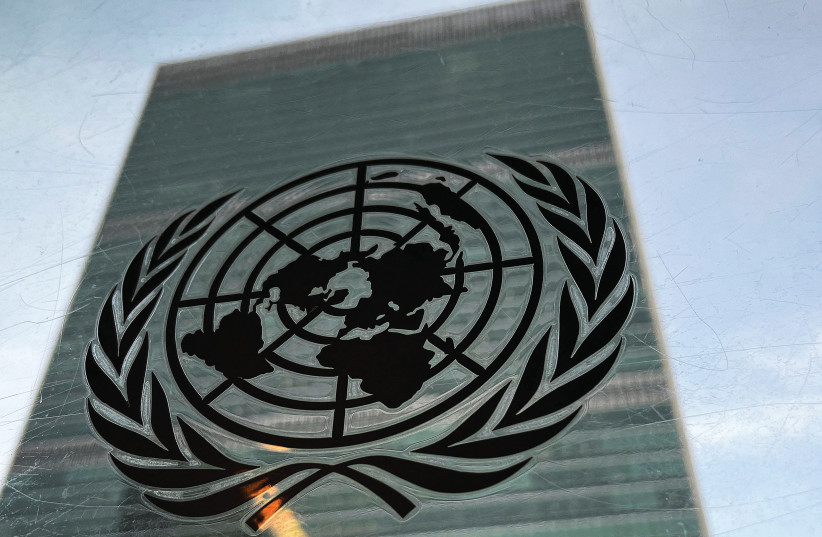Today is World Indigenous Day, as set out by the United Nations. This should be a significant day for Jews and Israel, because, after all, Jewish people are indigenous to the Land of Israel.
However, due to misrepresentations of Jewish identity, many Jews feel disconnected from this concept. Nevertheless, in order to reclaim our story and define our own experience and identity, Jewish people must acknowledge that they are an indigenous people, and that Jewish communities everywhere constitute a Middle Eastern Diasporic community.
To understand indigeneity, it’s important to examine its etymology. It comes from the Latin noun indigena (native), which was formed by combining old Latin indu (in or within) with the verb gignere (to beget). This is the essence of the Jewish connection to the Land of Israel, the land from which we emerged, or literally, were born.
By definition, indigenous peoples are diverse and unique, sometimes making them difficult to pin down precisely. The United Nations enumerated seven criteria:
- Self-identification as indigenous peoples at the individual level and accepted by the community as their member
- Historical continuity with pre-colonial and/or pre-settler societies
- Strong link to territories and surrounding natural resources
- Distinct social, economic, or political systems
- Distinct language, culture, and beliefs
- Form non-dominant groups of society
- Resolve to maintain and reproduce their ancestral environments and systems as distinctive peoples and communities.
Except for the sixth criterion, which we shall set aside as it suggests that an indigenous community must be non-dominant and does not give room for decolonization, the other criteria strongly resonate with the Jewish experience. In fact, they appear to precisely affirm the Jewish narrative, as we can see from the following:

UN criteria and the Jews
Self-identification as indigenous peoples at the individual level and accepted by the community as their member.
For thousands of years, the Jewish connection to the Land of Israel has been central to Jewishness and Judaism. Jews have always considered themselves native to this land, calling themselves Am Yisrael (the people of Israel). Jews in the Diaspora pray toward Israel and are even buried with two bags of soil from Israel to symbolically return every person to the Land of Israel when they die.
Historical continuity with pre-colonial and/or pre-settler societies
In exile, Jews preserved cultural practices connecting them to their ancient ancestors. They follow a separate calendar dating back to Ancient Israel (currently 5783). The Torah serves as both a religious scripture and a legal document, shaping parts of Jewish life, such as kashrut. Its teachings instruct Jewish ethical and moral principles, guiding personal and communal behavior. These traditions sustain a sense of continuity with their ancient heritage, and demonstrate Jewish dedication to identity and values, even in diverse cultural contexts.
Strong link to territories & surrounding natural resources
The Jewish connection to the land is integral to various aspects of Jewish life. Festivals like Passover, Sukkot, and Shavuot are linked to agricultural cycles. Tu Bishvat marks the new year for trees and has an agricultural provenance.
Jerusalem holds immense spiritual and historical importance, mentioned 669 times in the Tanach. Consequently, Jews face Jerusalem in prayer, expressing their longing and connection to the geographical city. The phrase l’shana haba’ah b’yerushalayim (next year in Jerusalem) reflects the desire to return to the Jews’ spiritual home. These traditions signify a deep-rooted attachment to the land and affirm the spiritual significance Jerusalem holds for the Jewish civilization.
Distinct social, economic, or political systems
Ancient Jewish social structures continue to influence Jewish practices and beliefs today. For instance, descendants of the ancient Kohanim, a priestly lineage, still observe the tradition of refraining from entering cemeteries, just as their ancestors did.
Additionally, Jews have specific financial laws that guide their interactions. Usury, the charging of excessive interest on loans, is prohibited when lending money to fellow Jews. Specific regulations exist regarding borrowing and outstanding debts. These practices stem from the fact that Jews form a distinct civilization with their own set of laws and values, which continue to shape their social and economic interactions.
Distinct language, culture, and beliefs
Hebrew is the indigenous language of the Jewish people, originating in the historical Land of Israel thousands of years ago. It served as a means of communication between Jewish communities in exile and remains the language of prayer in Judaism.
Significantly, Hebrew constitutes the official language of the State of Israel. Proto-Judaism emerged at the end of the Bronze Age, with the Jews likely splitting off from the Canaanites to worship a singular deity, represented by the Tetragrammaton (YHWH). This monotheism became the defining component of Jewish belief.
Jewish culture reflects the unique historical experiences, traditions, and values of the Jewish people. Shared cultural practices, such as songs, food, festivals, and prayers, passed down for generations, foster a sense of connection and continuity with our forebears, uniting Jews worldwide.
Resolve to maintain and reproduce their ancestral environments and systems as distinctive peoples and communities
As Jews migrated across the world, they adapted to new environments while maintaining their connection to their ancestral roots and the Land of Israel. They worshiped the same God, followed the same laws, and communicated in Hebrew. Shared traditions like kashrut, Passover, Rosh Hashanah, Hanukkah, and observance of Shabbat served as unifying factors, fostering a collective Jewish identity.
Despite the diversity, Jews affirm a common heritage enabling them to form a global community. Even as they embrace local customs, Jews have preserved a unique identity and connection to Israel, enabling them to endure as a collective entity.
What does this mean?
Evidence that our historical roots are firmly established in the Land of Israel is supported by archaeological and epigraphic findings. However, what truly defines modern Jews as indigenous to the land of Israel, is the time-honored observance of our ancient cultural expressions. These practices serve as a testament to the enduring nature of our civilization.
While some of us can trace our lineage back to the original practitioners of these customs, all Jews are inheritors of a civilization that remains vibrant in the present day.
Defining Jews as indigenous matters in our quest to maintain a firm grasp of our own narrative. It means that we do not have to rely on external sources to define our identity. As we know, Jewish identity is frequently undermined. Ashkenazi Jews are falsely portrayed as Europeans or descendants of Khazar tribes, and Israel is inaccurately depicted as a white settler colonial state.
Against this backdrop, Jewish literacy becomes a powerful, emphatic affirmation. We thereby refuse to allow others to define us. The significance of indigeneity lies in its inherent truth. We are not attempting to force the Jewish experience into a loosely fitting definition that tangentially relates to our story. On the contrary, the criteria and categories we are discussing here align seamlessly with our civilization and heritage. To embrace our indigeneity is to lay claim to our unique identity, ensuring that our narrative remains authentic, undistorted – and ours.
This is our story, and it is our responsibility to narrate it. We cannot depend on others, especially considering their historical misrepresentations and biases, to accurately portray us. It is crucial that we have a deep understanding of our own identity so that we can proudly declare, “I am a Jew, and I am indigenous to the Land of Israel.”
The writer is the founder of the modern Jewish Pride movement, an educator, and the author of Jewish Pride: Rebuilding a People.
